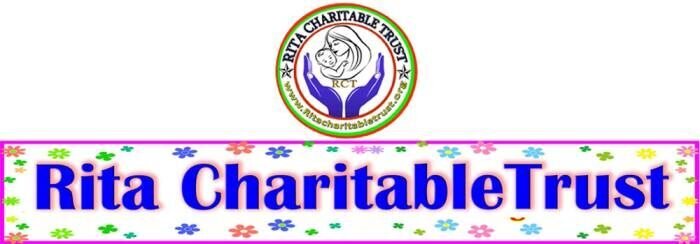Free Accounts Executive Of Payroll Course (6Months)
Accounts Executive Of Payroll:
Brief Job Description:
Accounts Executive (Payroll) is a person appointed by any company, who is responsible
for maintaining and updating records relating to the amount of salaries payable to
employees.
Personal Attributes:
The individual is required to have excellent understanding of accounting processes that
relates to calculation of salaries payable to employees. Excellent co-ordination with
Human Resource Department is mandatory for performing the job in an efficient and
effective manner. In addition to having problem solving skills, the individual must be
self‐driven and organized with his work and act with integrity when performing
multiple tasks for the organization.

Understanding the various concepts to perform the Payroll function:
Understanding the components of Salary
To be competent, the user/individual on the job must be able to:
PC1. Understand in detail the various components forming part of salary payable to employees.
PC2. Have detail knowledge of the components of fixed pay such as Basic, H.R.A, any special allowance etc.
PC3. Understand the components of variable portion of salary such as Incentive, commission, overtime which varies month on month.
Maintaining records of employees joined during the current year
To be competent, the user/individual on the job must be able to:
PC4. Maintain and update records of date of joining of new employees.
PC5. Seek from relevant authority the employee number issued to such person and maintain the records of the same.
PC6. Update the designation changes of the employee into the database.
PC7. Record the data as to which department/team and role, the new employee has been assigned.
PC8. Record the verified and attested Date of Birth of the new employee into various/required documents.
PC9. Record and update the salary components and other details of the employee
Maintaining records of resignations during the current year
To be competent, the user/individual on the job must be able to:
PC10. Record and update the date of resignation of the employee.
PC11. Mark the employee number of such person to mean “resigned”.
PC12. Understand in detail the Salary calculation that forms part of full and final settlement. Maintain and update records of date of joining of new employees.
Preparing and maintaining attendance records of employees
To be competent, the user/individual on the job must be able to:
PC13. Update leave details of employees into the database.
PC14. Record the leave without pay details of employees.
PC15. Record the overtime details of employees (when applicable).

Seek and receive Income Tax declarations from employees
To be competent, the user/individual on the job must be able to:
PC16. Have authority to obtain rent declaration from the employees in time.
PC17. Have authorization to receive savings declaration from the employees.
PC18. Obtain investment declaration from employees.
PC19. Seek and receive declarations regarding housing loan/allied douments.
PC20. Record leave travel documents/declarations from the employees into the database.
PC21. Obtain previous employment details if required/applicable
Understanding the details regarding PF deductions
To be competent, the user/individual on the job must be able to:
PC22. Thoroughly understand the concepts and terms regarding PF deduction procedures.
PC23. Calculate the amount of PF to be deducted individually from employees’ salaries.
PC24. Calculate the amount of PF deducted totally that needs to be submitted to the government account.
PC25. Have thorough understanding of government websites through which payment is to be made.
PC26. Have understanding of the organization’s contribution to PF accounts.
Understanding the details regarding ESI deductions
To be competent, the user/individual on the job must be able to:
PC27. Thoroughly understand the concepts and terms regarding ESI deduction procedures.
PC28. Understand the applicability of ESI provisions to employees with salary as limited by present rules.
PC29. Calculate the amount of ESI to be deducted individually from employees’ salaries.
PC30. Calculate the amount of ESI deducted totally that needs to be submitted to the government account.
PC31. Have thorough understanding of government websites through which payment is to be made.
PC32. Have understanding of the organization’s contribution to ESI accounts
Organizational Context
The user/individual on the job needs to know and understand:
KA1. The products/services the company deals in.
KA2. Different accounting system/procedure/processes that are followed by the company.
KA3. Organizational guidelines for dealing with different types of receipts and payments.
KA4. Company’s policies regarding the employee compensation..
KA5. Processes and methods of payments of compensation and recovery of loan/advances to employees.
Technical Knowledge
The user/individual on the job needs to know and understand:
KB1. Thorough knowledge of Accounting Principles.
KB2. Basic accounting concepts and techniques for recording transactions.
KB3. Working knowledge regarding due dates for payments to the Government and filing of returns with the concerned authorities.
KB4. Working knowledge of financial concepts such as calculation of interest amount, VAT, Service Tax etc. and knowledge of tax laws and tariffs relevant to the business.
KB5. Have transaction processing knowledge.
KB6. Clear understanding about concepts relating to calculation of salary.
KB7. Procedures to record the details of work hours of employees.
KB8. The differentiation between payments and reimbursement concepts.
KB9. Procedures for digitally updating employee details.
KB10. IT skills and operating procedures of computers and other electronic devices.
KB11. Preparation of statements/charts or any other report as is required / designed by the organization.
KB12. Use of computers and have working knowledge of MS Excel, MS Word etc.
Core Skills/ Generic Skills

Writing Skills
The user/ individual on the job needs to know and understand how to:
SA1. Prepare reports and summary of the receipts/payments for review.
SA2. Prepare reports on status of other receipts accounts.
SA3. Communicate and share knowledge with peers and supervisors.
Reading Skills
The user/individual on the job needs to know and understand how to:
SA4. Read and understand organizational and regulatory guidelines.
SA5. Read and verify legitimacy of documents submitted by concerned person.
SA6. Read and explain terms to the other party.
Integrity
The user/individual on the job needs to know and understand how to:
SA7. Maintain integrity with respect to sensitive documents
SA8. Act objectively and in the best interests of customers
Mathematical Skills
The user/individual on the job needs to know and understand how to:
SA9. Compute numbers quickly and accurately.
SA10. Perform basic mathematical operations such as addition, subtraction, multiplication and division
SA11. Calculate accurately any tax to be charged, discount allowed etc., w.r.t. the customer’s account as per the company policy
Oral Communication (Listening and Speaking skills)
The user/individual on the job needs to know and understand how to:
SA1. Listen to the customers and be able to offer products that are pertinent to their requirements.
SA2. Communicate clearly with the customer using language that he/she understands.
SA3. Communicate and share knowledge with peers and supervisors.

Professional Skills
Decision Making
The user/individual on the job needs to know and understand how to:
SB1. Differentiate between the critical documents and its relevance in accounting.
SB2. Make clear, logical decisions regarding the upkeep of documents.
Plan and Organize
The user/individual on the job needs to know and understand how to:
SB3. Plan the work/tasks at hand.
SB4. Organize work & time in order to maximize productivity..
Problem Solving
The user/individual on the job needs to know and understand how to:
SB5. Address problems arising either due to a technical issue, customer grievance or administration related issues and escalate those issues beyond one’s role.
Motivation and Critical Thinking
The user/individual on the job needs to know and understand how to:
SB6. Be self driven, take initiatives and deliver results set by the organization and respective seniors
SB7. Consistently obtain feedback and improve their performance.
SB8. Exercise judgment in unforeseen situations which preserve company values and are in line with organizational guidelines.
Attention to detail
The user/individual on the job needs to know and understand how to:
SB9. Check whether the work is complete and free from errors.
SB10. Get the work checked by others.
Team work
The user/individual on the job needs to know and understand how to:
SB11. Contribute to the quality of team working.
SB12. Work effectively in a team environment.
Technical Skills
The user/individual on the job needs to know and understand how to:
SC1. Use information technology effectively to input and/or extract data accurately.
SC2. Identify and refer anomalies in the data.
SC3. Store and retrieve information.
SC4. Keep updated with changes, procedures and practices in the role.
SC5. Use software packages and tools specific to the field of expertise.
Understanding in detail the documents relating to the job role:
Understanding and recording the employee details
To be competent, the user/individual on the job must be able to:
PC1. Record and maintain the correct name of the employee as per validated proof.
PC2. Record and update the designation of the employee.
PC3. Record and maintain the date of Joining of the employee.
PC4. Understand and record the date of any promotion and/or change in job role.
PC5. Have access to the leave details of the employee for salary calculation process
Having in-depth knowledge of salary details
To be competent, the user/individual on the job must be able to:
PC6. Understand thoroughly different components of salary.
PC7. Understand and differentiate between fixed and variable portions of salaries.
PC8. Understand the constituents of fixed salary.
PC9. Have detailed understanding about the company policies regarding variable pay.
Having in-depth knowledge about salary deductions
To be competent, the user/individual on the job must be able to:
PC10. Understand the concept of deductions.
PC11. Understand in detail the various forms of deductions from salary.
PC12. Understand the company policy regarding the deduction relating to advances and loans.
PC13. Have thorough understanding about the income tax laws and deductions from salary.
PC14. Have access to the leave details of employees and its effects/deductions from salary as per the company policy.
Have access to relevant documents
To be competent, the user/individual on the job must be able to:
PC15. Have access to obtain/receive relevant documents as is required for performing the role.
PC16. Understand the relevance of these documents.
PC17. Thoroughly understand the contents of these documents.
PC18. Gather additional documents pertaining to any special requirement.
PC19. Check for authenticity of the documents and report to the concerned authority regarding any deviation.
PC20. Have clear demarcation regarding the documents that relates to the time period for which calculation of salary is being undertaken.
Have access to reference documents
To be competent, the user/individual on the job must be able to:
PC21. Have access to obtain/receive relevant reference documents as is required for performing the role.
PC22. Understand the company policy/process manual regarding the payroll process.
PC23. Refer any already designed format and/or salary calculation guide in case of clarifications.
PC24. Obtain clear data relating to the deductions to be made from salary of respective employees.
Filing and maintaining records
To be competent, the user/individual on the job must be able to:
PC25. Understand the relevance of the main/supported documents.
PC26. Prioritize according to the importance of the documents and maintain the same order.
PC27. File the documents in chronological order to enable seamless retrieval of the same in case of any requirement in the future.
PC28. Produce such document as is needed at the time for clarifications.
PC29. Segregate the data as required in the current financial year.
Organizational Context
KA1. The products/services the company deals in.
KA2. Different accounting system/procedure/processes that are followed by the company.
KA3. Organizational guidelines for dealing with different types of receipts and payments.
KA4. Company’s policies regarding the employee compensation.
KA5. Processes and methods of payments of compensation and recovery of loan/advances to employees.
Technical Knowledge
The user/individual on the job needs to know and understand:
KA6. Thorough knowledge of Accounting Principles.
KA7. Basic accounting concepts and techniques for recording transactions.
KA8. Working knowledge regarding due dates for payments to the Government and filing of returns with the concerned authorities.
KA9. Working knowledge of financial concepts such as calculation of interest amount, VAT, Service Tax etc. and knowledge of tax laws and tariffs relevant to the business.
KA10. Have transaction processing knowledge.
KA11. Clear understanding about concepts relating to calculation of salary.
KA12. Procedures to record the details of work hours of employees.
KA13. The differentiation between payments and reimbursement concepts.
KA14. Procedures for digitally updating employee details.
KA15. IT skills and operating procedures of computers and other electronic devices.
KA16. Preparation of statements/charts or any other report as is required/designed by the organization.
KA17. Use of computers and have working knowledge of MS Excel, MS Word etc.
Core Skills/ Generic Skills
Writing Skills
The user/ individual on the job needs to know and understand how to:
SA1. Prepare reports and summary of the receipts for review.
SA2. Prepare reports on status of other receipts accounts.
SA3. Communicate and share knowledge with peers and supervisors.
Reading Skills
The user/individual on the job needs to know and understand how to:
SA4. Read and understand organizational and regulatory guidelines
SA5. Read and verify legitimacy of documents submitted by the concerned person
SA6. Read and explain terms of receipts to the other party.
Integrity
The user/individual on the job needs to know and understand how to:
SA7. Maintain integrity with respect to sensitive documents.
SA8. Act objectively and in the best interests of the company.
Mathematical Skills
The user/individual on the job needs to know and understand how to:
SA9. Compute numbers quickly and accurately.
SA10. Perform basic mathematical operations such as addition, subtraction, multiplication and division.
SA11. Calculate accurately any tax to be charged, discount allowed etc., w.r.t. the customer’s account as per the company policy.
Professional Skills
Decision Making
The user/individual on the job needs to know and understand how to:
SB1. Differentiate between the critical documents and its relevance in accounting.
SB2. Make clear, logical decisions regarding the upkeep of documents.
Plan and Organize
The user/individual on the job needs to know and understand how to:
SB3. Plan the work/tasks at hand.
SB4. Organize work & time in order to maximize productivity.
Problem Solving
The user/individual on the job needs to know and understand how to:
SB5. Address problems arising either due to a technical issue, customer grievance or administration related issues and escalate those issues beyond one’s role.
Motivation and Critical Thinking
The user/individual on the job needs to know and understand how to:
SB6. Be self driven, take initiatives and deliver results set by the organization and respective superiors
SB7. Consistently obtain feedback and improve their performance
SB8. Exercise judgment in unforeseen situations which preserve company values and are in line with organizational guidelines.
Attention to detail
The user/individual on the job needs to know and understand how to:
SB9. Check whether the work is complete and free from errors.
SB10. Get the work checked by others
Team work
The user/individual on the job needs to know and understand how to:
SB11. Contribute to the quality of team working.
SB12. Work effectively in a team environment
Technical Skills
Technical Skills
The user/individual on the job needs to know and understand how to:
SC1. Use information technology effectively to input and/or extract data accurately.
SC2. Identify and refer anomalies in the data.
SC3. Store and retrieve information.
SC4. Keep updated with changes, procedures and practices in the role.
SC5. Use software packages and tools specific to the field of expertise.
Preparation of salary advice:
Obtaining and Understanding the salary register
To be competent, the user/individual on the job must be able to:
PC1. Have access to/obtain salary register or by any other term referred or any other document that contains the Employee details.
PC2. Seek and receive login-ID to access employee details when stored in electronic mode.
PC3. Understand the contents and methods of recording data onto it
Verifying the employee details
To be competent, the user/individual on the job must be able to:
PC4. Check and verify individual data for each employee.
PC5. Verify whether employee name corresponds to employee code.
PC6. Verify the updated job role, designation appears alongside the employee details.
PC7. Co-relate the Date of Joining/leaving of the employee with the available documents
Recording the earning/salary details
To be competent, the user/individual on the job must be able to:
PC8. Understand the components of salary.
PC9. Record the fixed amounts as earned by the employee on monthly basis.
PC10. Record the variable amounts as earned by the employee on monthly basis.
Making adjustments regarding deductions
To be competent, the user/individual on the job must be able to:
PC11. Understand the concept of deductions.
PC12. Have access to obtain all documents in original form as required for calculation of specific deduction.
PC13. Calculate the various deductions from salary such as HRA, TDS, ESI, PF etc. as applicable to each employee.
PC14. Record the amount of deductions as against the earning details of each employee.
PC15. Refer the company policy regarding any other form of deductions (statutory or otherwise).
Preparation of Net salary statement
To be competent, the user/individual on the job must be able to:
PC16. Have access to the salary statement format as designed in the organization.
PC17. Seek and receive any log-in ID required to record data in electronic mode.
PC18. Understand the contents of such statement.
PC19. Collect and compile data as required to prepare the statement.
PC20. Fill-in the net salary statement.
PC21. Prepare salary advice detailing the net salary payable to each employee.
PC22. Present the salary advice for approval from Senior/Manager.
Organizational Context
The user/individual on the job needs to know and understand: KA1. The products/services the company deals in. KA2. Different accounting system/procedure/processes that are followed by the company. KA3. Organizational guidelines for dealing with different types of receipts and payments. KA4. Company’s policies regarding the employee compensation. KA5. Processes and methods of payments of compensation and recovery of loan/advances to employees
Technical Knowledge
The user/individual on the job needs to know and understand:
KB1. Thorough knowledge of Accounting Principles.
KB2. Basic accounting concepts and techniques for recording transactions.
KB3. Working knowledge regarding due dates for payments to the Government and filing of returns with the concerned authorities.
KB4. Working knowledge of financial concepts such as calculation of interest amount, VAT, Service Tax etc. and knowledge of tax laws and tariffs relevant to the business.
KB5. Have transaction processing knowledge.
KB6. Clear understanding about concepts relating to calculation of salary.
KB7. Procedures to record the details of work hours of employees.
KB8. The differentiation between payments and reimbursement concepts.
KB9. Procedures for digitally updating employee details.
KB10. IT skills and operating procedures of computers and other electronic devices.
KB11. Preparation of statements/charts or any other report as is required/designed by the organization.
KB12. Use of computers and have working knowledge of MS Excel, MS Word etc
Generic Skills
The user/ individual on the job needs to know and understand how to:
SA1. Prepare reports and summary of the collections for review.
SA2. Prepare reports on status of overdue customers’ accounts.
SA3. Communicate and share knowledge with peers and supervisors.
Reading Skills
The user/individual on the job needs to know and understand how to:
SA4. Read and understand organizational and regulatory guidelines.
SA5. Read and verify legitimacy of documents submitted by customers.
SA6. Read and explain terms of collections to customers
Integrity
The user/individual on the job needs to know and understand how to:
SA7. Maintain integrity with respect to sensitive documents.
SA8. Act objectively and in the best interests of the company.
Mathematical Skills
The user/individual on the job needs to know and understand how to:
SA9. Compute numbers quickly and accurately.
SA10. Perform basic mathematical operations such as addition, subtraction, multiplication and division.
SA11. Calculate accurately any tax to be charged, discount allowed etc., w.r.t. the customer’s account as per the company policy.
Skills
Decision Making
The user/individual on the job needs to know and understand how to:
SB1. Differentiate between the critical documents and its relevance in accounting.
SB2. Make clear, logical decisions regarding the upkeep of documents.
Plan and Organize
The user/individual on the job needs to know and understand how to:
SB3. Plan the work/tasks at hand.
SB4. Organize work & time in order to maximize productivity.
SB5. Liaison with customers.
Problem Solving
The user/individual on the job needs to know and understand how to:
SB6. Address problems arising either due to a technical issue, customer grievance or administration related issues and escalate those issues beyond one’s role
Motivation
The user/individual on the job needs to know and understand how to:
SB7. Be self driven, take initiatives and deliver results set by the organization and respective seniors.
Critical Thinking
The user/individual on the job needs to know and understand how to:
SB8. Consistently obtain feedback and improve their performance
SB9. Exercise judgment in unforeseen situations which preserve company values and are in line with organizational guidelines
Attention to detail
The user/individual on the job needs to know and understand how to:
SB10. Check whether the work is complete and free from errors.
SB11. Get the work checked by others
Team Work
The user/individual on the job needs to know and understand how to:
SB12. Contribute to the quality of team working.
SB13. Work effectively in a team environment.
Technical Skills
The user/individual on the job needs to know and understand how to:
SC1. Use information technology effectively to input and/or extract data accurately.
SC2. Identify and refer anomalies in the data.
SC3. Store and retrieve information.
SC4. Keep updated with changes, procedures and practices in the role.
SC5. Use software packages and tools specific to the field of expertise










